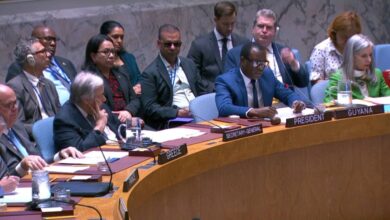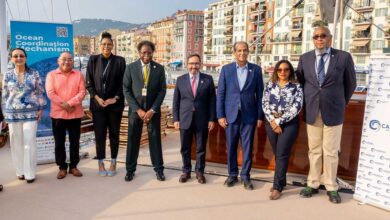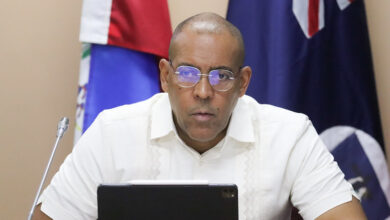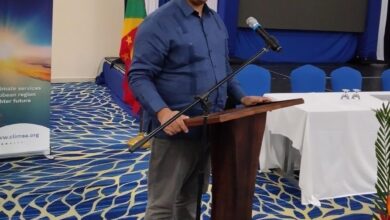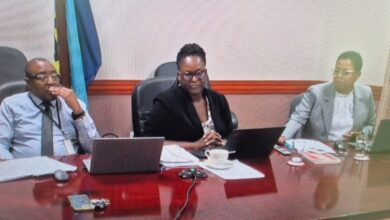Climate change, threats to biodiversity, economic uncertainty due to external shocks, and limited institutional and financial capacity, are the key concerns of Ministers with responsibility for the Environment of the Caribbean Community.
The concerns were highlighted during the 112th Special Meeting of the Council for Trade and Economic Development on The Environment and Sustainable Development which was conducted virtually on 15 May 2024.
The Hon. Pennelope Beckles-Robinson, Minister of Planning and Development of Trinidad and Tobago, chaired the half-day Meeting which focused on the upcoming Fourth Conference of Small Island Developing States (SIDS4), environmental and natural resource governance of the Community, climate change and disaster risk reduction. Matters related to plastic pollution and the new agreement under the Law of the Sea on Biodiversity Beyond National Jurisdiction (BBNJ) were also discussed.
In her remarks during the opening session, the Chair referred to the Region’s dependence on its marine resources and healthy ecosystems. These, she said, are threatened by climate change, biodiversity loss and plastic pollution.
“CARICOM countries are particularly dependent on healthy ecosystems for our livelihoods and survival. It has been estimated that the Exclusive Economic Zone (EEZ) for SIDS is … 28 times the country’s land mass. Thus, most of the natural resources from which we benefit are related to ocean and marine spaces. Livelihoods associated with industries like tourism and fisheries make up significant parts of the GDP of countries, which also benefit significantly from biological resources in the form of food, clean water, reduced beach erosion, soil and sand formation, and protection from storm surges.”
“Strong and resilient ecosystems also reduce the additional costs resulting from climate change, soil erosion, pollution, floods, natural disasters, as well as some man-made disasters. However, all these resources are under threat from the triple planetary crisis of climate change, biodiversity loss and pollution,” the Minister said.
She also pointed to the Region’s peculiar position of limited institutional capacity and financial resources, and its vulnerability to external.

Mr. Joseph Cox, CARICOM Assistant Secretary-General, Economic Integration, Innovation and Development, also spoke of environmental threats and security and supply chain crises, warning that there is much to be done and that global engagement is crucial. He highlighted the upcoming 29th Meeting of the Conference of Parties (COP29) and its focus on a new finance global goal to help developing countries cut greenhouse gas emissions and adapt to the impacts of extreme weather due to climate change.
“Ministers must prepare for battles on climate negotiations and climate impacts. With a growing task list and shrinking resources, strain can be seen at the Member States and Regional Institutions’ levels. Although technical officers are committed, there is a shortage of personnel. This hampers policy formulation and keeping up with international processes. Nonetheless, regional and national actions are being supported, along with providing a framework for governance and decision-making. The Secretariat and the directorate are committed to continuing their support. Despite resource constraints, the Council meetings are serviced with focus, while initiatives are undertaken for Caribbean well-being and resilience,” Mr. Cox said.


